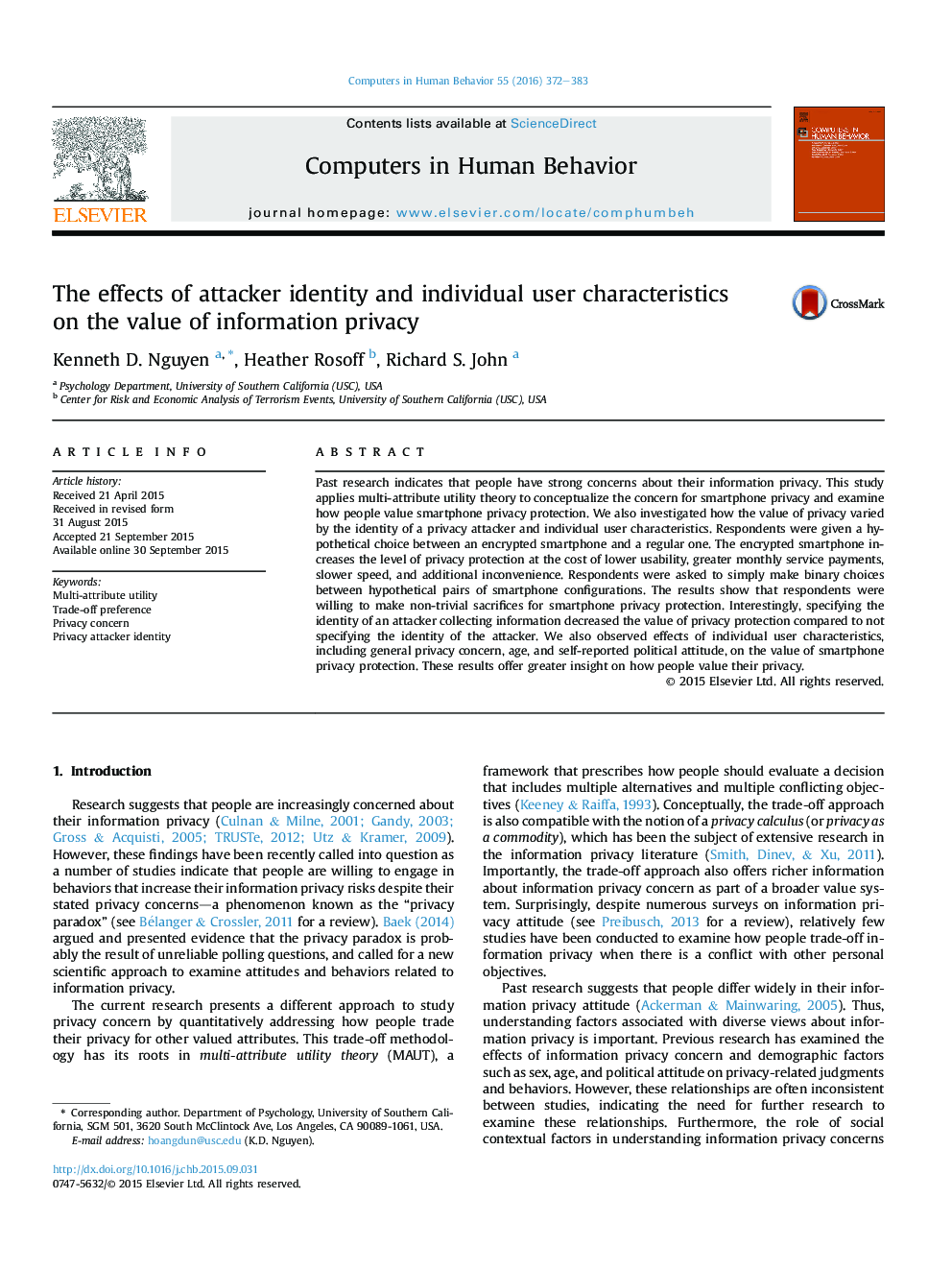| Article ID | Journal | Published Year | Pages | File Type |
|---|---|---|---|---|
| 350184 | Computers in Human Behavior | 2016 | 12 Pages |
•We examined how people value information privacy in a multi-attribute context.•We studied how information privacy concern depends on the privacy attacker identity.•Respondents were willing to make non-trivial sacrifices for information privacy.•Age, political attitude, and privacy concern significantly predicted privacy values.•The values of privacy were dependent upon the attacker identity.
Past research indicates that people have strong concerns about their information privacy. This study applies multi-attribute utility theory to conceptualize the concern for smartphone privacy and examine how people value smartphone privacy protection. We also investigated how the value of privacy varied by the identity of a privacy attacker and individual user characteristics. Respondents were given a hypothetical choice between an encrypted smartphone and a regular one. The encrypted smartphone increases the level of privacy protection at the cost of lower usability, greater monthly service payments, slower speed, and additional inconvenience. Respondents were asked to simply make binary choices between hypothetical pairs of smartphone configurations. The results show that respondents were willing to make non-trivial sacrifices for smartphone privacy protection. Interestingly, specifying the identity of an attacker collecting information decreased the value of privacy protection compared to not specifying the identity of the attacker. We also observed effects of individual user characteristics, including general privacy concern, age, and self-reported political attitude, on the value of smartphone privacy protection. These results offer greater insight on how people value their privacy.
